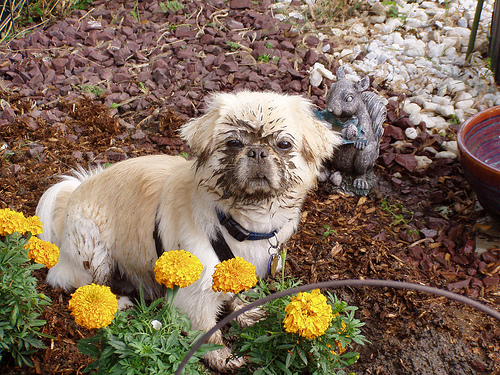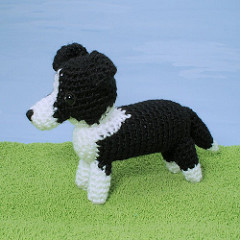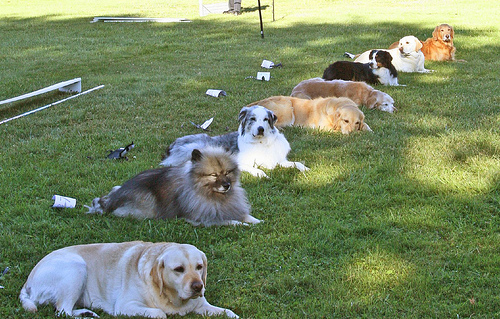Maybe you have a new baby in the house. Maybe the neighbors are giving you dirty looks. Or, maybe you're just at your wit's end. Regardless, it's no good to have a dog that won't stop barking. To get to the root of the problem, you must understand why your dog is barking. Then, you must work to change behaviors; that's right, behaviors. Both yours and the dog's.
Does your dog tend to do of the majority of his barking to earn your attention? This, while annoying, is easy to fix. Because many of us spoil our pets, they aren't used to being without our attention. Constant petting, baby-talking, and treat-giving are to blame. If your dog uses barking to get your attention, stop responding. This may prove difficult at first. Ignore the dog's barks and stay busy with something else. When you are ready to acknowledge the dog, do so. This will curb the behavior. Similarly, if you let your dog outside and he barks when he wants to come inside and you respond, this only reinforces his action. Next time, don't wait until he has a chance to bark. Go ahead and let him in. Or, don't open the door at the first sound of barking. Wait a while. If you continue this behavior, his tendency to bark for attention will subside.
Another reason dogs may bark is because they aren't used to being left alone and feel anxious. If your dog barks while you're gone, there are several tricks you can try. First, don't make leaving or returning home a big deal. When you leave for the day or just an errand, there's no need to put on a big production telling the dog how much you love them and miss them. Similarly, when you return, don't go over the top. Come inside, look at the mail, get a drink, and then say hello to the dog. When you make a big deal about comings and goings, the dog senses this and thinks being alone is a really big deal.
Also, watch your tone when you ask your dog to be quiet. The words you use, whether shhh or quiet, don't matter. It's how you say them. First, say the word and then do something. You can splash water in your dog's face; you can sound an air horn. Either way, you're distracting the dog with something uncomfortable. Repeat this several times, and your dog should remain quiet.

 How To Deal With Dogs That Dig
How To Deal With Dogs That Dig
Digging can be a fr
How To Deal With Dogs That Dig
How To Deal With Dogs That Dig
Digging can be a fr
 Train Your Border Collie Dog With These Helpful Hints
The day your new puppy comes home with you will be filled
Train Your Border Collie Dog With These Helpful Hints
The day your new puppy comes home with you will be filled
 Safe Chew Toys for Your Dog
Safe Chew Toys for Your Dog
Safe Chew Toys for Your Dog
Safe Chew Toys for Your Dog
 Canine Manners 101: Teaching your dog the basics of the 揝tay?Command
Teach Your Dog The "Stay" Command
Teaching your
Canine Manners 101: Teaching your dog the basics of the 揝tay?Command
Teach Your Dog The "Stay" Command
Teaching your
 City Slickers: 5 Tips for Urban Living with Cats & Dogs
City Slickers: 5 Tips for Urban Living with C
City Slickers: 5 Tips for Urban Living with Cats & Dogs
City Slickers: 5 Tips for Urban Living with C